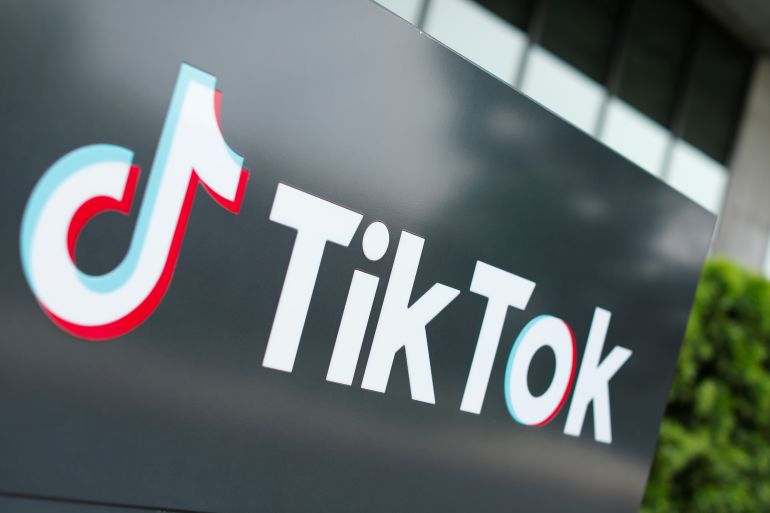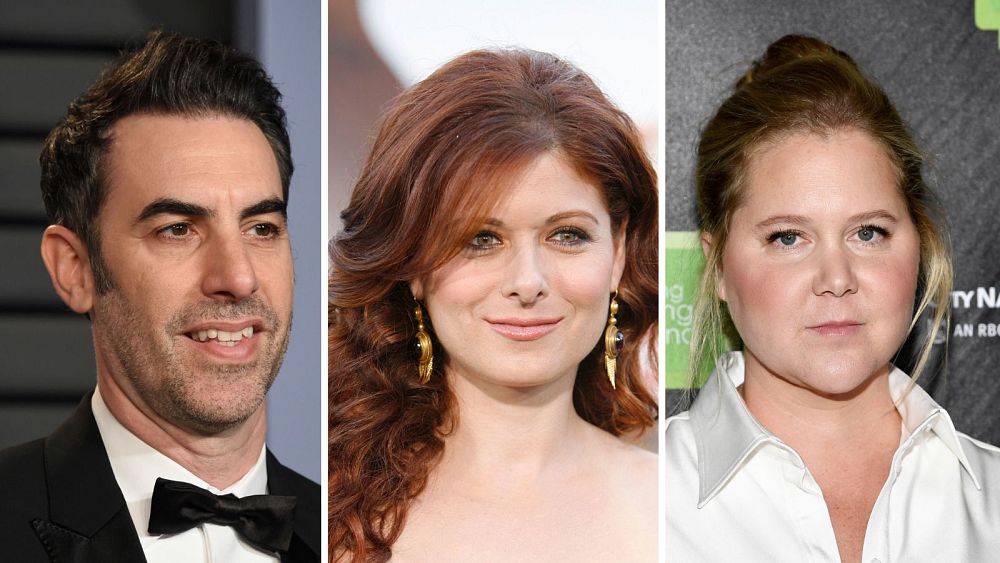beijingwalker
ELITE MEMBER

- Joined
- Nov 4, 2011
- Messages
- 65,191
- Reaction score
- -55
- Country
- Location
Is it TikTok? Here’s why some young Americans sympathize with Palestinians
Many factors, including social media, demographic change and Israel’s prime minister, may be responsible for the rift between young Americans and Israel, experts say.Nov. 19, 2023, 10:30 PM CST
By David Ingram

A well-documented shift in how young Americans perceive Israel in recent years has become the subject of heated debate, most notably among some technologists and politicians keen to point the finger at TikTok.
But while TikTok has certainly become a bigger part of youth news diets, there is far more at play than the video app, according to political scientists, pollsters and activists on both sides of the U.S. debate. Theories for why young Americans increasingly sympathize with Palestinians include: the influence of the Black Lives Matter movement, the right-wing politics of Israeli Prime Minister Benjamin Netanyahu’s administration, changes in U.S. demographics, the fallout of the Iraq and Afghanistan wars, and the images and videos of Palestinian civilians that are spreading on all social media apps, not only TikTok.
“It would be really easy to blame social media platforms,” said Joshua Kertzer, a professor of international studies and government at Harvard University.
“You can’t draw inferences about the causal effects of exposure on TikTok when people are choosing what to be exposed to in the first place,” he added, noting that TikTok’s algorithm tends to show people what they’re interested in.
The phenomenon of young Americans’ siding with the Palestinian cause is relatively new in the decadeslong history between Israelis and Palestinians, so its origins aren’t completely understood.
But there’s little doubt it’s happening, with polls demonstrating a division in how age groups in the U.S. view the situation. In an NBC News national poll released Sunday, 64% of respondents ages 65 and older said they had positive feelings toward Israel, while 12% said they had negative views. For those ages 18-34, the split was 26% positive and 37% negative. The difference was similar when people were asked whether Israel’s military action in Gaza was justified, with the 65-and-over group saying it was justified 61% to 22%; in the 18-34 group, 31% said it was justified, and 42% said that Israel had gone too far and that its response wasn’t justified.
Polls, though, generally don’t ask people why they’re supporting one side or another, leaving researchers to look at other evidence.
Thomas Zeitzoff, an associate professor of public affairs at American University, said the shift may reflect the influence of the Black Lives Matter movement on some young people’s thinking. Some activists have drawn parallels between the treatment of people of color in the U.S. and the treatment of Palestinians in the West Bank and Gaza.
“A lot of these protests are about, yes, the conflict, but they’re also about domestic politics,” he said.
Support for Israel had turned by 2021, according to Quinnipiac University Poll data. Registered voters of all ages in March 2019 sympathized with Israelis over Palestinians 47% to 16%, but that changed to 41% to 30% in May 2021 — a net change of 20 percentage points — according to that poll. Many events happened in the intervening two years, including the 2020 protests after the death of George Floyd and Israel’s airstrike on a Gaza high-rise that included Associated Press offices. (Opinion snapped back toward Israel in the immediate aftermath of the Oct. 7 attacks by Hamas, to 61% to 13%.)
The domestic politics of Israel may also play a role, Zeitzoff said. Netanyahu has openly feuded with Democrats, including then-President Barack Obama, and he heads a right-wing government that has expanded West Bank settlements over the Biden administration’s objections. His push this year to overhaul Israel’s judiciary sparked mass protests not only by Israelis but also by thousands of American Jews. A Pew survey in August found that Americans ages 18-29 had low confidence in Netanyahu.
“There was a conscious effort among Netanyahu and the Israeli right and others to cultivate friendships with right-wing people. So Israel becomes a partisan issue,” Zeitzoff said.
Kertzer and Zeitzoff both pointed to another factor: the changing perception of Israel’s power in the Middle East. Older generations watched Israel fight for independence and then fight Egypt, Syria and other countries in the wars of 1967 and 1973.
“These are conflicts where Israel is seen as an underdog, surrounded by adversary states that are trying to eliminate it,” Kertzer said.
“That’s very different from younger generations who see that Israel has always been a nuclear power, that Israel has always been more powerful than its adversaries,” he added.
Elaine Kamarck, a senior fellow in governance studies at the Brookings Institution, noted that Israel’s early history inspired the bestselling novel “Exodus” in 1958 and a 1960 film adaptation with Paul Newman, then a young star.
“Every non-Jew I knew read it,” Kamarck said of the novel. “Older people, people who were cognizant in the 1960s, learned a heroic story of Israel and understood it in the context of the Holocaust and the need for a homeland after the Second World War. Younger people have no idea what that story is about.”
There are other theories for what’s behind the shift in public opinion. One is demographics, according to the Council on American-Islamic Relations, or CAIR: Muslim immigration rose sharply after Congress eliminated certain immigration quotas in 1965, making it more likely that Americans know Muslims as classmates, neighbors or co-workers. And simply knowing Muslims is associated with more positive views of the religion, according to the Pew Research Center. In a 2007 Pew survey, 56% of those who knew Muslims had favorable overall impressions of them, compared with 32% among those who didn’t know Muslims. Most Palestinians are Muslims.
“Younger people have grown up in America with classmates who are Palestinian or Muslim or some other ethnic group that their parents weren’t around,” said Edward Ahmed Mitchell, 37, CAIR’s national deputy director.
The percentage of Americans who are Jewish has declined over a similar time frame, from about 3.2% in 1957 to about 2.4% in 2020, according to survey data from the Census Bureau and the Pew Research Center. And Jewish Americans aren’t uniformly supportive of the Israeli government, with 76% of respondents saying in a survey this month that someone can be critical of how Israel is conducting the war with Hamas and still be “pro-Israel.”
It may also be that young adults in the U.S. are less likely than older generations to think the use of military force can solve international problems, whether they are border disputes or climate change or drug trafficking. Researchers said there’s evidence that they prefer international cooperation, instead.
“Young people grew up on watching our nation wage two endless wars,” said Usamah Andrabi, 30, the communications director for Justice Democrats, a group dedicated to electing progressive Democrats to Congress in the mold of Rep. Alexandria Ocasio-Cortez, D-N.Y.
“More than anyone,” he added, “they have seen that too recently to not see the signs of a U.S.-supported war in the Middle East, and they want no part of it.”
Activists on both sides of the debate said the role of social media is too big to ignore, even if researchers say the scientific evidence about the influence of TikTok and other apps is inconclusive. If nothing else, firsthand personal accounts are now accessible on demand from thousands of miles away. Accounts belonging to Palestinian journalists and content creators in Gaza have recently thrived on Instagram.
Echelon Insights, a Republican-leaning polling firm, found in a poll last month that among registered voters under 40, use of the social media apps Instagram or X was correlated with support for Palestinians even more than use of TikTok.
The Israeli government has recently expanded its online communications efforts, buying ads on social media and posting graphic videos of the Oct. 7 attacks by Hamas.
The fact that it took so long for the Israeli government to grow its social media presence hasn’t helped its cause, said Dan Gotesdyner, 19, a member of Club Z, an organization that encourages teenagers to embrace their Jewish identity. He agreed that TikTok and other apps are influential, and he’d like to see Israel’s supporters more active there.
“The sweep of anti-Israel sentiment is a result of a campaign that has been cooking for decades,” he said. “I’m not surprised with the way America has gone.”

Is it TikTok? Here’s why some young Americans sympathize with Palestinians
Many factors, including social media, demographic change and Israel’s prime minister, may be responsible for the rift between young Americans and Israel, experts say.
Last edited:

